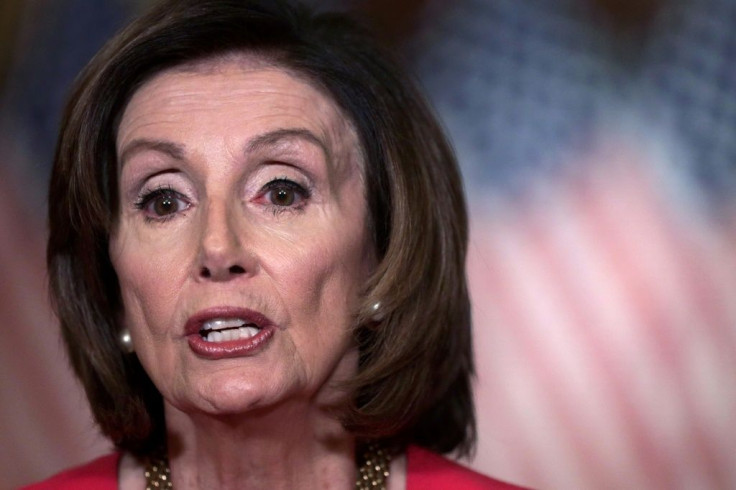Nancy Pelosi Preps Lobbyist Bailout for Next Stimulus Bill
KEY POINTS
- Pelosi said she wants to expand PPP to include 501(c)(6)s, or lobbying firms
- 2008 TARP $700B bill's recipients spent over $100M on lobbying and campaign giving
- Because the coronavirus upended normal order, Pelosi controls the House
Amid reports of “frenzied” lobbying around the historic trillion-dollar stimulus bills passed out of Congress came a seemingly anodyne anecdote on the next stimulus bill being crafted by House Majority Leader Nancy Pelosi’s leadership: “The Democrats’ bill would also expand small business relief to nonprofits that were previously excluded, such as 501(c)(4) and 501(c)(6) organizations,” Pelosi was quoted in Roll Call
A 501(c)(6) organization is IRS-speak for a lobbyist group. While lobbying has earned a negative connotation thanks to decades of transparent corruption in Washington D.C. in large part from some of the world’s largest lobbying firms on K Street, the core task of lobbying is necessary for a democracy to function. The federal government cannot be fully informed on every single topic, and various groups establish 501(c)(6)s that are designed not to make a profit while lobbying lawmakers with ideas they believe can benefit their activities.
Ideally, lobbyist groups act in the interest of their industries, but the Jack Abramoff scandal of the mid-aughts proved that much of what constitutes lobbying in Washington hems closer to institutionalized bribery.

Whenever stimulus plans like the 2008 TARP bill hit the floor, the nation’s largest and wealthiest entities send waves of lobbyists to Capitol Hill’s doorsteps to stump for their piece of the pie, leaving less available for the majority of Americans who cannot afford lobbying firms to represent their interests. In 2009, OpenSecrets found that beneficiaries of the $700 billion bailout passed the year before spent $77 million on lobbying and $37 million on campaign contributions, amounting to a 258,449% return on their investment.
The larger the bill, the easier it is to hide “pork” or “pork-barrel projects,” Washington-speak for unnecessary items inserted into a bill to please specific people in a politician’s district to earn that politician’s vote, a practice derided by Sen. John McCain, R-Ariz., and others. This is how K Street lobbying gets done, with some of the more absurd examples of pork-barrel projects being hidden in the Commerce, Justice, Science Appropriations Act, like $500,000 for a virtual space exhibition hidden by Sen. Kay Bailey Hutchinson, R-Texas, and $900,000 for Obama’s notorious planetarium inserted into the bill by Reps. Danny Davis, D-Ill. and Jesse Jackson, Jr. D-Ill.
All this past malfeasance by lobbyists now brings attention to this impending decision by Pelosi, who is functionally running the House of Representatives on her own with help from Democratic leadership due to the coronavirus pandemic upending normal order. In late March, nearly 70 House Democrats sent Rep. Jim McGovern, D-Mass., chairman of the House Rules Committee, a letter asking him to establish rules allowing for remote voting as the entire nation socially distances to adjust to this new reality. Pelosi directed McGovern to investigate the possibility and has publicly stated that the goal is to eventually implement it, although she has been vague at best on the timeline of when that would happen, all the while charging forward with this new bill she will introduce shortly.
Because Congress cannot convene normally in accordance with the constitution, this situation sans remote voting has awarded the Speaker de facto emergency powers, functionally stripping democratic control from hundreds of representatives and disenfranchising millions of voters. Without remote voting, Democratic members of the House cannot utilize the mechanisms created for them to advance legislation, meaning that whatever bills come out of the House during this period without remote voting will have been crafted almost entirely by Pelosi and House leadership.
While the Speaker has proposed plenty of new items in this new bill, the 501(c)(6) exemption into the small business relief program cannot be ignored. David Dayen, author of Monopolized: Life in an Age of Corporate Power, pointed out in The American Prospect that “[the Paycheck Protection Program] will be out of money by the time any bill passes.” Having firsthand experience with how power works in Washington D.C., Dayen subsequently questioned Pelosi’s intent with this move, asking “Does tweaking eligibility signal giving more to this program [in the future], in part to just shovel money at lobbying firms?”
© Copyright IBTimes 2024. All rights reserved.



















